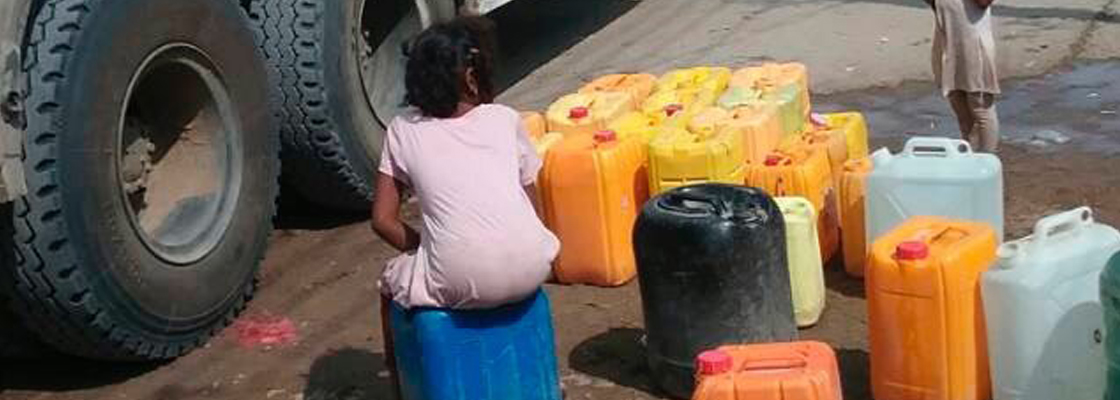Sundown and its reflection in the sea water in Hodeidah forms a wonderful painting that embodies the splendor of nature. It's a picture that reflects the beauty of life in this area - a scene loved by millions of people. However, on the other side, there are women and children who have a totally different story to tell: A story of hardship and suffering from disease caused by polluted water.
As the day winds up with sunset, a women or a child have already been infected by malaria or acute diarrhea in the Kadaf neighborhood in Hodeidah. It's a tragedy repeated daily in this neighborhood, where the majority of its inhabitants are destitute families and the poorest.
The Kadaf neighborhood chief Bachir Yehia Abdullah describes the situation in the neighborhood by saying: "It's a tragic situation…the available water sources in the neighborhood are not safe…the sources are open surface water subject to air pollution and disease carrying insects – and this is the reasons for the wide-spread malaria and acute diarrhea amongst the residents of the neighborhood."
Chief Bachir Yehia asserts that the majority of the people living in the area are thin and wasted - especially children - and most suffer from chronic diseases caused by polluted water.
Saving the Children
The PWP has intervened by rehabilitating the Kadaf water network using funding from USAID. This intervention during the current conditions in Yemen, according to Mahfouz Naji, a head of a household living in the neighborhood, would have a good impact on the residents and will enhance public health and safety in the community. He said this is especially true since summer is fast approaching, which is the season when malaria, cholera and the dengue fever set-in, and polluted water becomes a source for these diseases.
Naji says: "No week would go by without one of my children falling sick with acute diarrhea from polluted water. There is no safe source of water, and my living situation is bad struggling with no income. Therefore, I am unable to buy clean water and the only recourse for me is the open water source at the well."
Disease-Free Summer
Salim Mabrouk, a resident and one of the beneficiaries of the subproject, said the rehabilitation of the water network translates into making the summer a disease-free season for the residents of Kadaf neighborhood. It also means clean water and an end to the suffering and hardship- hopefully with no returns."
Mabrook goes on to say: "Clean water means healthy growth and sound bodies for the children, and safe pregnancies with no risk of miscarriages for women."




